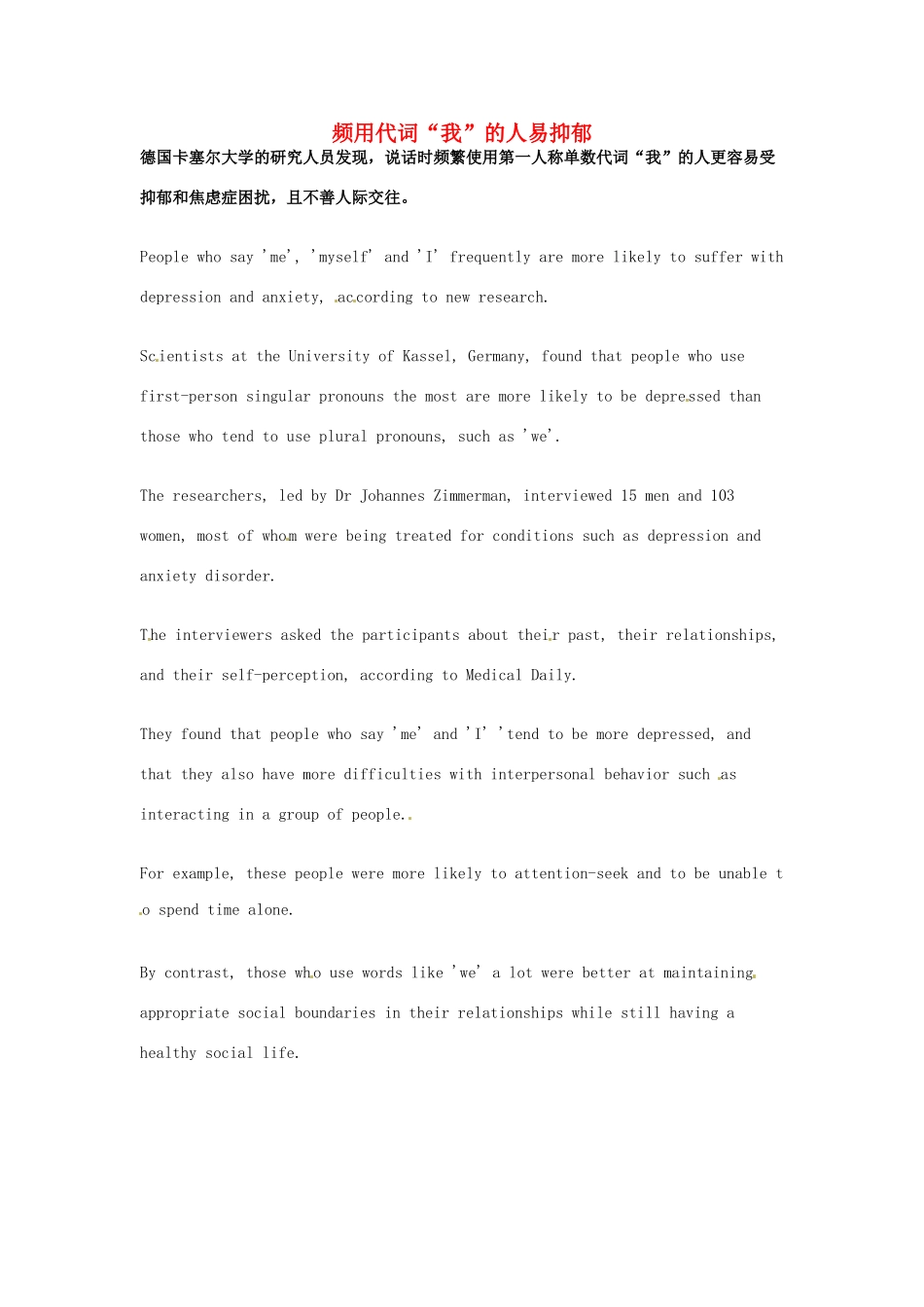频用代词“我”的人易抑郁德国卡塞尔大学的研究人员发现,说话时频繁使用第一人称单数代词“我”的人更容易受抑郁和焦虑症困扰,且不善人际交往。 People who say 'me', 'myself' and 'I' frequently are more likely to suffer with depression and anxiety, according to new research. Scientists at the University of Kassel, Germany, found that people who use first-person singular pronouns the most are more likely to be depressed than those who tend to use plural pronouns, such as 'we'. The researchers, led by Dr Johannes Zimmerman, interviewed 15 men and 103 women, most of whom were being treated for conditions such as depression and anxiety disorder. The interviewers asked the participants about their past, their relationships, and their self-perception, according to Medical Daily. They found that people who say 'me' and 'I' 'tend to be more depressed, and that they also have more difficulties with interpersonal behavior such as interacting in a group of people. For example, these people were more likely to attention-seek and to be unable to spend time alone. By contrast, those who use words like 'we' a lot were better at maintaining appropriate social boundaries in their relationships while still having a healthy social life. Dr Zimmerman told Medical Daily: 'Using first-person singular pronouns highlights the self as a distinct entity whereas, using first-person plural pronouns emphasize [being part of] social relationships.' As a result, Dr Zimmerman believes that people who use the singular pronouns tend to be needier.

